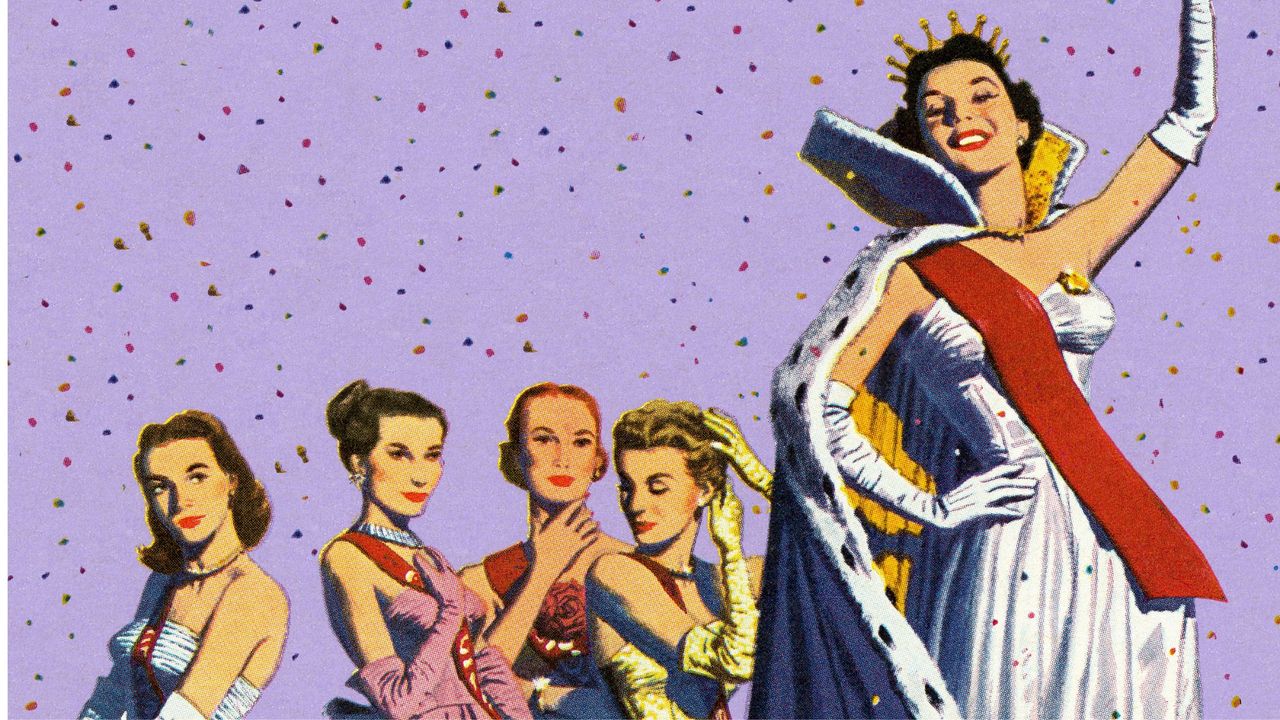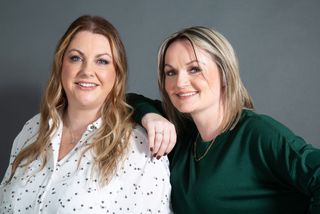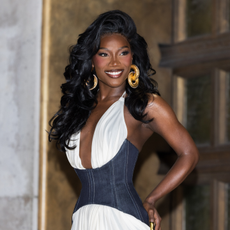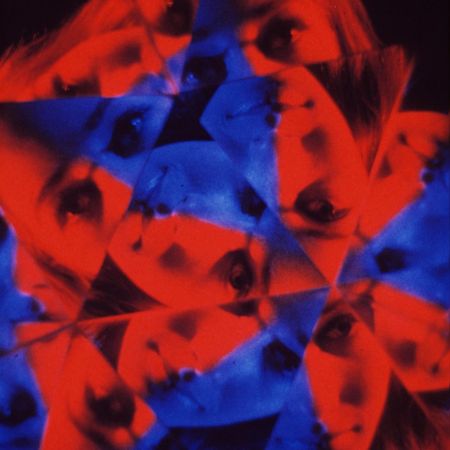Are they *really* a narcissist? What psychotherapists want you to know about Narcissistic Personality Disorder
Narcissism might be a buzzword, but the condition exists, and its impact is devastating


What is Narcissistic Personality Disorder (NPD), and how can you recognise it in friends, partners, family and even yourself?
“You’re so vain...” sang Carly Simon back in 1972. The anthem was allegedly about a composite of braggadocious men, notably Warren Beatty and Mick Jagger, but what strikes me now is how innocent it seems.
We live in an age where the terms ‘gaslighting’, ‘triggering’, and ‘narcissism’ are bandied around with wild abandon, so you’d be forgiven for thinking everyone in your life is toxic/problematic/trauma-bonded.
We set boundaries, we cut and cancel people from our lives, but how often do we sit down and analyse what it all means? As someone who has spent a decent amount of time in therapy (and a hefty chunk of money, to boot), I wince when I hear friends refer to their ex as a narcissist when they’re really just a tosser.
When did we all become pseudo-psychologists? Are we really as informed as we think when it comes to diagnosing clinical disorders? To accuse someone of being “vain” in 2024 feels almost quaint, but maybe Carly had it right, she knew she was in no position to be dolling out diagnoses (though I think she was bang on the money with Jagger and Beatty).
As author Oliva Petter recently asked, “If everyone is a narcissist, is anyone?” Ascribing personality disorders to every self-centred jackass sets the stage for dangerous normalisation. Anyone who has truly found themselves in a relationship with a narcissist—whether romantic, platonic, familial, or professional—will already know this.
So, how do you cut the wheat from the chaff? Or rather, the narcissist from the garden-variety vain? Psychotherapists Katie McKenna and Helen Villiers lay out everything you need to know about Narcissistic Personality Disorder. But first, let’s say a little prayer. The Narcissist’s Prayer, that is...
Marie Claire Newsletter
Celebrity news, beauty, fashion advice, and fascinating features, delivered straight to your inbox!
That didn’t happen.
And if it did, it wasn’t that bad.
And if it was, that’s not a big deal.
And if it is, that’s not my fault.
And if it was, I didn’t mean it.
And if I did, you deserved it.
— by Dayna Craig
By Katie McKenna and Helen Villiers
I’ll never forget when I challenged my (now ex) partner about his behaviour towards me. “I know, I know, I’m the worst; you can do so much better than me; I’m a loser,” he said, full of self-pity. I immediately felt bad for him and rushed to reassure him that he wasn’t a loser, that I loved him, and that I was lucky to have him. Little did I know, I had been a victim of motivational empathy, something someone with Narcissistic Personality Disorder (NPD) will use to avoid responsibility or to manipulate you into doing something for them you don’t really want to do.
They weaponise our feelings of fear, obligation and guilt. People will NPD make us feel like we have no choice but to do what they want because we’re either scared of their reaction, feel obliged from a sense of loyalty, or feel that to say no would make us mean and unkind, something most of us don’t want to be.
They weaponise our feelings of fear, obligation and guilt
Katie McKenna and Helen Villiers
There is a common misconception that Narcissistic Personality Disorder (NPD) is as rare as diamonds. But just like diamonds, NPD is a lot more common than people think, and so, as with diamonds, there is a scale of severity. Some people display mild traits, while others display extreme traits.
There are five main traits of NPD - Grandiosity, Entitlement, Exploitation, Motivational Empathy and Impaired Self Awareness.
These traits can show up both overtly or covertly. For example, overt grandiosity would be someone who talks about how much better they are; if you’ve been to Tenerife, they’ve been to ‘Elevenerife’. Whereas covert grandiosity would be quieter, someone who thinks they’re superior but doesn’t declare it obviously; instead, they show it by devaluing everyone they feel threatens their superiority. An example might be when they criticise someone with a nicer house or car than theirs, saying things like “It’s a bit brash, isn’t it?” or “Well, it’s not to my taste”.

Not everyone who says those things has NPD, but a need to assert superiority over others might be an indicator of NPD. When someone with NPD asks for something, it isn’t a request but a demand, and if you dare to say no, they will retaliate with either anger or motivational empathy.
People with NPD will use a series of behaviours, such as love bombing, breadcrumbing, gaslighting (deflection, dismissal, denial, projection, minimising), stonewalling and hoovering to dominate and control others. We don’t just see narcissism in romantic relationships or parent-child relationships; it can also show up in friendships, colleagues, or any relationships. Someone with NPD will want a constant supply of evidence that they are the most important person.
Do they know that they’re narcissists?
We get this question all the time, and the sad fact is yes. They know that if they act a certain way, they’ll get what they want.
As psychotherapists, this intentionality of behaviour is the hardest thing for our clients to come to terms with. But as we often say, if they know not to do it in front of other people, they know it’s wrong, and they know how to control it.
This is particularly difficult to accept when the person is your parent.
I used to think I held so much power in my family. From a young age, I was the mediator, the fixer. I was responsible for my mother’s emotions—all of them. I knew what mood she was in just from her breathing. It was my job to protect her, reassure her, and make her happy. And I was so good at it that I thought I had a superpower—but it turned out I was hypervigilant due to years of parentification from my mother.
Parentification happens when the roles are reversed. The parent forces the child into a parent role and demands their child take on adult responsibilities, making the child responsible for ensuring everyone else’s needs are met, while their own usually go ignored.
A child that grows up in these environments will become either hyper dependent or hyper-independent. Both trauma responses will also include hypervigilance.
Signs of being hyper-independent include
- Struggling to trust others
- Disliking needy people
- Deciding everything by yourself
- Being guarded in relationships
- Being overly private about your personal life
Signs of being hyper-dependent include
- Not being able to say no
- Fearing conflict
- Feeling like a burden
- Over apologising
- Oversharing
How do you know if you’re a narcissist?
Well, if you’re reading this and thinking, “It would be awful if I impacted someone that way,” the chances are you’re not a narcissist. Being exposed to a narcissistic parent may mean we have some learned behaviours that we need to take responsibility for and change, but it still doesn’t mean we are narcissists.
That’s not to say that narcissists don’t wonder if they are narcissistic or not; it’s that they don’t care if they are, or more accurately, they’re not willing to look at their behaviour and take responsibility for it. They will dismiss or justify their behaviour and never concede they made a mistake.
Being able to identify toxic behaviours that might indicate NPD is paramount for ensuring healthy relationships for ourselves as well as everyone around us. There’s no escaping that this condition exists, and it has a devastating impact on everyone exposed to it.
Katie McKenna and Helen Villiers are professional psychotherapists and the authors of the Sunday Times bestseller You’re Not the Problem: The Impact of Narcissism and Emotional Abuse and How to Heal.

Mischa Anouk Smith is the News and Features Editor of Marie Claire UK.
From personal essays to purpose-driven stories, reported studies, and interviews with celebrities like Rosie Huntington-Whiteley and designers including Dries Van Noten, Mischa has been featured in publications such as Refinery29, Stylist and Dazed. Her work explores what it means to be a woman today and sits at the intersection of culture and style. In the spirit of eclecticism, she has also written about NFTs, mental health and the rise of AI bands.
-
 Penn Badgley turned down the role of Dan Humphrey multiple times - here's what we know about the You star
Penn Badgley turned down the role of Dan Humphrey multiple times - here's what we know about the You starBy Jenny Proudfoot
-
 These five looks prove Doechii is a fashion icon in the making
These five looks prove Doechii is a fashion icon in the makingVersatility is the word
By Sofia Piza
-
 My 2025 beauty resolution was to have 'main character hair'—these are the cuts I’m considering to look and feel my *best*
My 2025 beauty resolution was to have 'main character hair'—these are the cuts I’m considering to look and feel my *best*A real transformation
By Jazzria Harris
-
 How my turbulent childhood pushed me into an obsession with wellness when I became a mother
How my turbulent childhood pushed me into an obsession with wellness when I became a mother“I realised that wellness felt like some insurance that I would not end up in my mother’s position.”
By Chelsea Bieker
-
 Do you have compassion fatigue?
Do you have compassion fatigue?Here’s how to stay connected with causes you care about while also caring for your own needs
By Yanar Alkayat
-
 ADHD is a feminist issue: More women that ever are being diagnosed — what took so long?
ADHD is a feminist issue: More women that ever are being diagnosed — what took so long?“I witnessed firsthand how challenging it is for a woman to be heard and receive a proper diagnosis in a world designed for men.”
By Mischa Anouk Smith